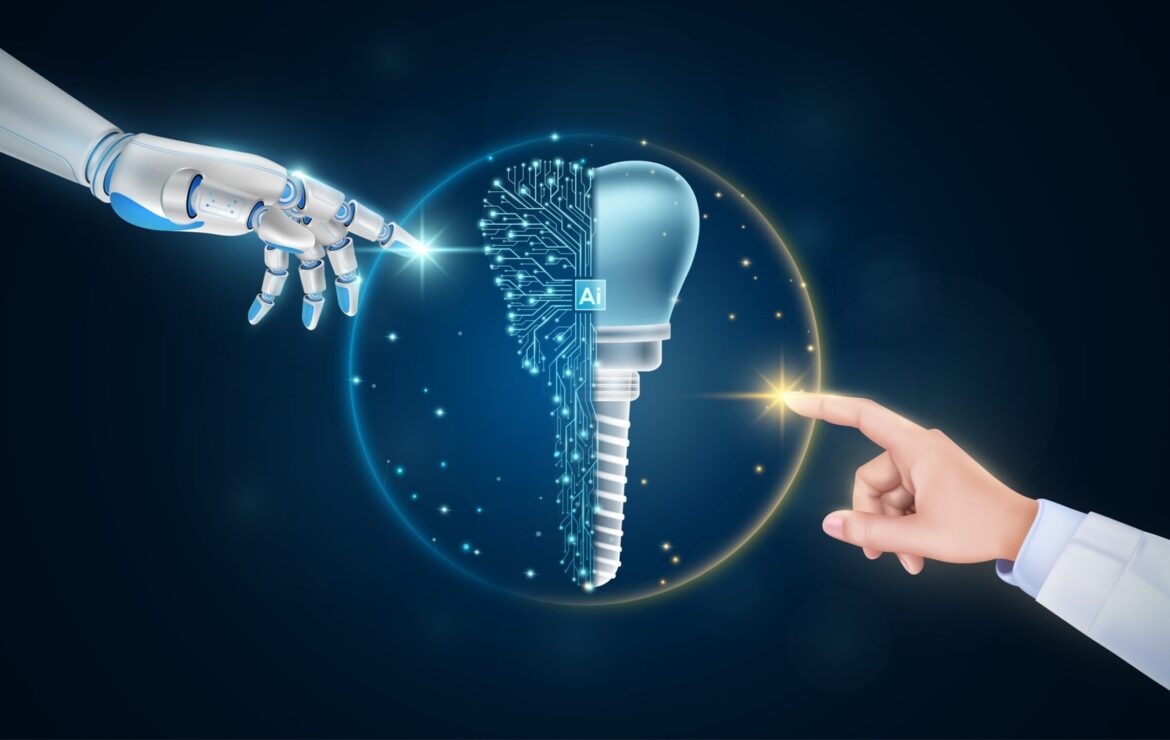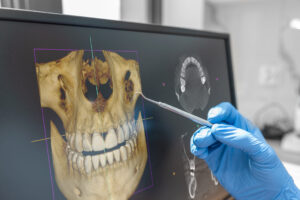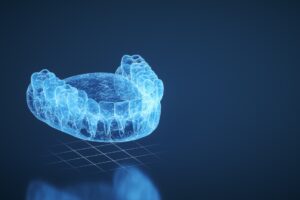Artificial Intelligence in Dentistry

Artificial Intelligence in Dentistry
Artificial intelligence (AI) is rapidly transforming the healthcare landscape, and dentistry is no exception. AI-powered tools are emerging that not only improve diagnostic accuracy but also streamline workflows and personalize patient care. Let’s delve into how AI is making waves in the dental field.
Enhanced Diagnostics: One of the most exciting applications of AI in dentistry is its ability to analyze dental images, including X-rays and intraoral photographs. AI algorithms can be trained to identify cavities, gum disease, bone loss, and even oral cancer with impressive accuracy. This can assist dentists in early detection of dental issues, leading to better treatment outcomes.
Streamlined Treatment Planning: AI is also playing a role in treatment planning for procedures like orthodontics and implant placement. By analyzing patient data and dental scans, AI can suggest optimal implant positions or predict tooth movement during orthodontic treatment. This not only improves treatment efficiency but also allows for more predictable outcomes.
Personalized Care: AI can analyze a patient’s medical and dental history, along with genetic data, to assess their risk of developing certain dental problems. This allows dentists to implement preventive measures tailored to each patient’s specific needs. For instance, a patient at high risk of cavities might benefit from more frequent cleanings or a personalized fluoride regimen.
The Future of AI in Dentistry: The potential applications of AI in dentistry are vast and constantly evolving. Here are some exciting possibilities on the horizon:
- AI-powered surgical robots could assist dentists in complex procedures, improving precision and minimizing complications.
- Virtual reality (VR) simulations powered by AI could enhance dental education and training.
- AI-driven chatbots could provide patients with 24/7 access to dental information and appointment scheduling.
While AI holds immense promise for dentistry, it’s crucial to remember that it is a tool, not a replacement for qualified dentists. The human element of dentistry, which involves a dentist’s experience, judgment, and patient interaction, remains irreplaceable.
In conclusion, AI is revolutionizing dentistry by offering improved diagnostics, streamlined workflows, and personalized care. As AI technology continues to develop, we can expect even more exciting advancements that will benefit both dental professionals and patients.




